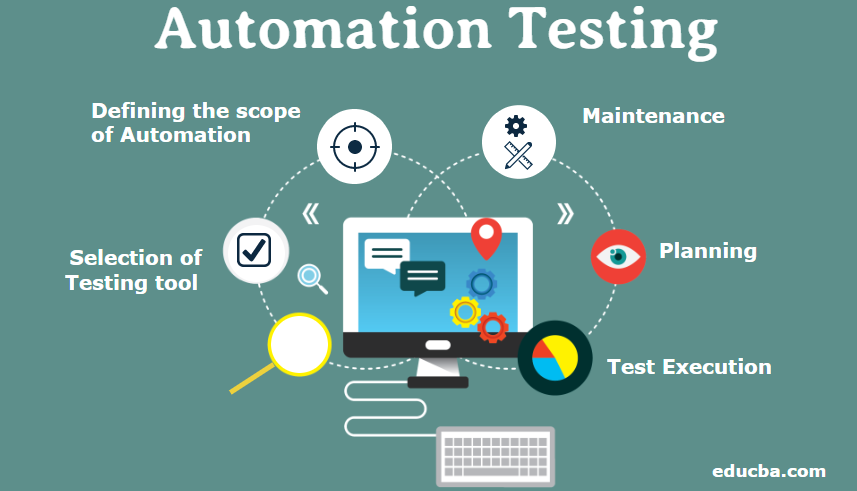Workshop on Automation Testing


Automation testing is a crucial component of modern software development. It enhances efficiency and accuracy by automating repetitive tasks. This approach is essential for delivering high-quality software within tight deadlines. Discover how automation testing can revolutionize your testing strategy.Benefits of Automation TestingAutomation testing offers several advantages:
- Increased Efficiency: Automation speeds up the testing process, reducing the time required for each test cycle.
- Consistency and Accuracy: Automated tests eliminate human errors, ensuring consistent and accurate results.
- Cost Savings: Although initial setup costs may be high, automation can lead to significant savings over time due to reduced manual testing efforts.
- Enhanced Test Coverage: Automated tests can cover more scenarios and test cases than manual testing, leading to better overall coverage.
Types of Automation TestingDifferent types of automation testing cater to various needs:
- Functional Testing: Validates the software’s functionality against specified requirements.
- Regression Testing: Ensures that new changes do not adversely affect existing features.
- Performance Testing: Assesses the software’s performance under various conditions.
- Load Testing: Determines how the software performs under high user loads.
Choosing the Right Automation ToolsSelecting the right tools is critical for successful automation testing. Popular tools include:
- Selenium: An open-source tool for automating web applications.
- QTP/UFT: A commercial tool that supports a wide range of applications.
- Appium: A versatile tool for mobile application testing.
- JMeter: Used for performance and load testing.
Best Practices for Automation TestingTo maximize the benefits of automation testing, consider the following best practices:
- Start Small: Begin with a few key test cases to ensure the framework is working as expected.
- Maintain Test Scripts: Regularly update and maintain test scripts to keep them relevant.
- Use Data-Driven Testing: Implement data-driven testing to improve test coverage and efficiency.
- Integrate with CI/CD: Incorporate automation testing into your Continuous Integration/Continuous Deployment (CI/CD) pipeline for seamless integration.
Challenges in Automation TestingDespite its benefits, automation testing comes with challenges:
- Initial Setup Costs: The upfront cost of tools and training can be significant.
- Script Maintenance: Automated test scripts require ongoing maintenance to stay effective.
- Complexity: Developing and managing automated tests can be complex, especially for large projects.
Automation testing is a powerful tool that enhances software quality and development efficiency. By understanding its benefits, types, and best practices, you can leverage automation to improve your testing processes. Although challenges exist, the long-term advantages often outweigh the initial investment. Embrace automation testing to stay ahead in the competitive software development landscape.